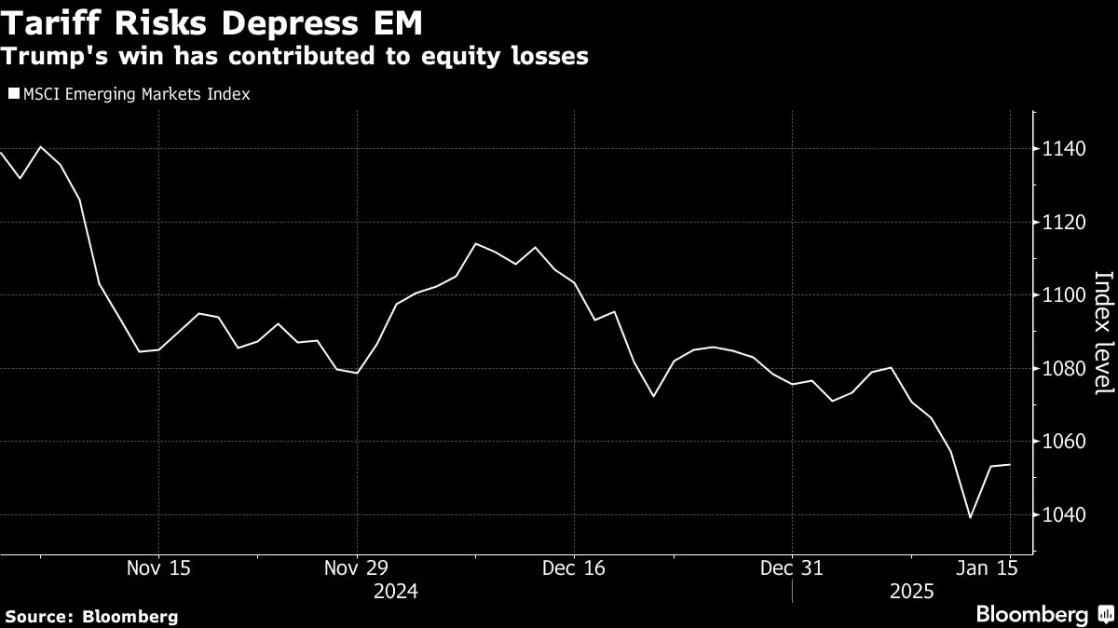(Bloomberg) -- Emerging-market equities and currencies are vulnerable to further losses as the recent selloff hasn’t fully priced in risks arising from Donald Trump’s potential tariffs, according to UBS Group AG.
The UBS Emerging Markets Risk Appetite Index stands about halfway between neutral and euphoric — unusually strong given the state of global growth, Manik Narain, the London-based head of EM cross-asset strategy at the Swiss lender, wrote in a note. Earnings estimates, currency-hedging costs and credit default swaps show market pricing of the risks remains at historically low levels, he said.
With less than a week to go before Trump’s inauguration, his pledge to raise import tariffs on China and other nations with substantial trade surpluses with the US is reverberating across global markets. The concern, along with worries over resurgent inflation, has erased $1.3 trillion of EM equity values and sent 27 of 31 most widely traded currencies into losses since the US election in November.
“Some investors believe that valuations already price in such risks after recent underperformance; we disagree,” Narain said. “Rather than in China itself, we see larger market moves playing out in the rest of the emerging world.”
China’s deflation is making the yuan more competitive relative to other EM currencies, boosting the country’s volume of exports to the developing world, Narain said. New US tariffs will fuel this export surge, putting production and capital expenditure within emerging markets under pressure, he said.
“Tariffs may be inflationary for the US, but the opposite will be true for those economies,” he said.
On the other hand, tariffs would also slow China’s imports as the world’s second-biggest economy is likely to face fiscal pressures and weaker profitability. EM commodity exporters will be hit by this. Even if China announces further fiscal stimulus, it is likely to focus on the consumer economy and not help the commodity sector.
In addition, slowing growth across emerging economies leave them in a weak position to navigate a potential trade war. EM stocks in tariff-sensitive sectors such as autos, steel and infrastructure remain expensive outside of China despite flat returns on equity, Narain said.
And tariffs may hurt beyond China, he said. Countries such as Mexico, Vietnam, Taiwan, Korea and Thailand face greater uncertainty as they enjoy firmer surpluses against the US and could also be targeted.


